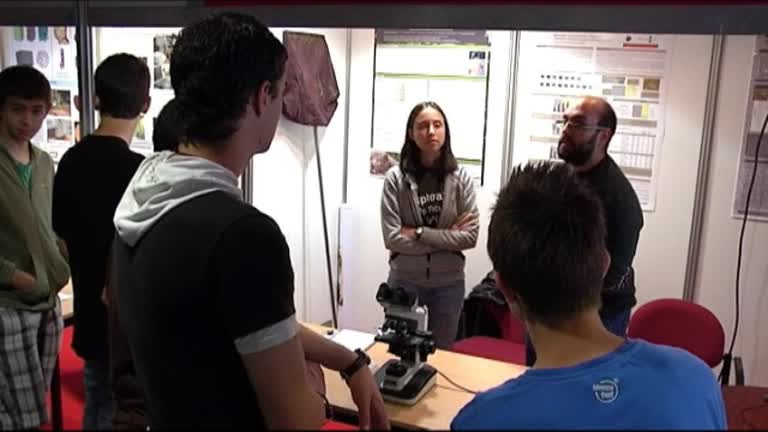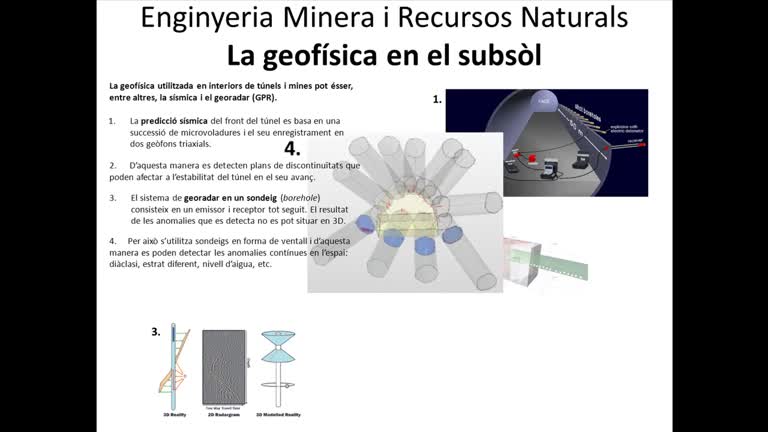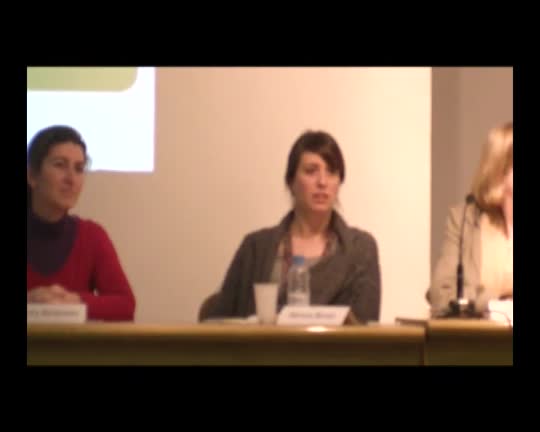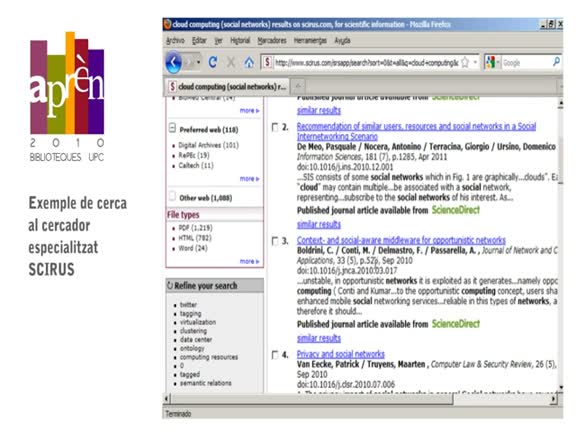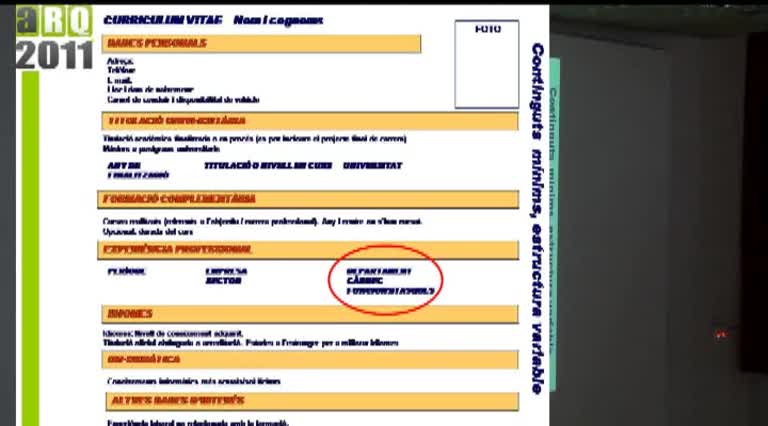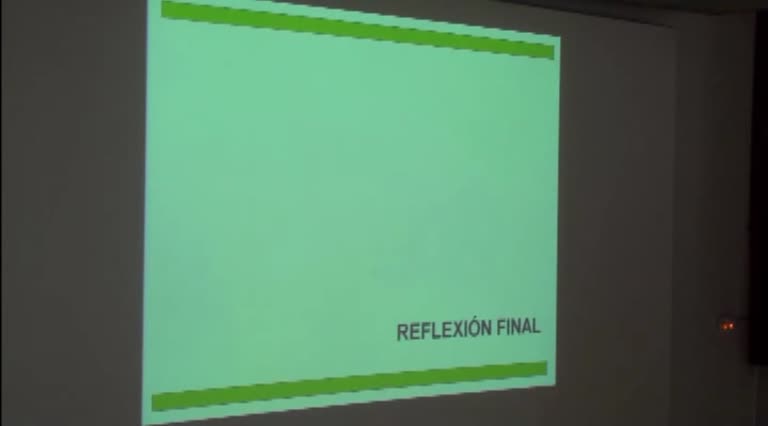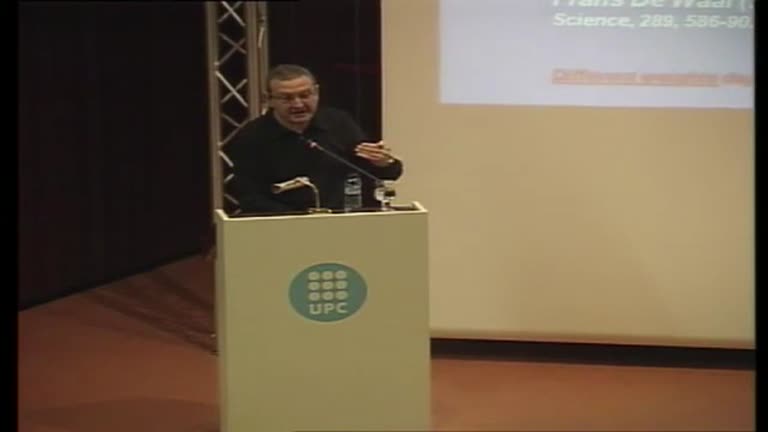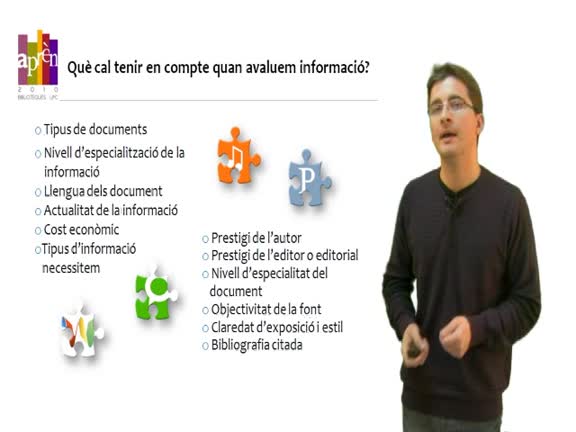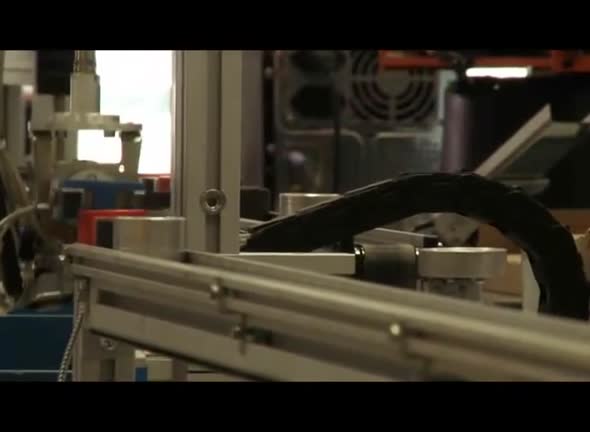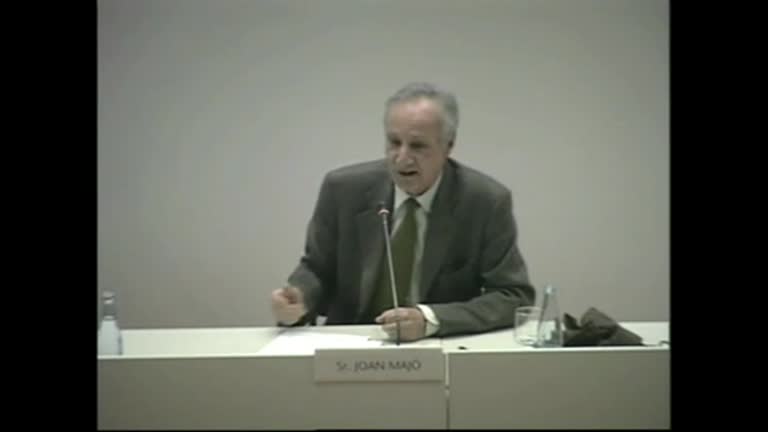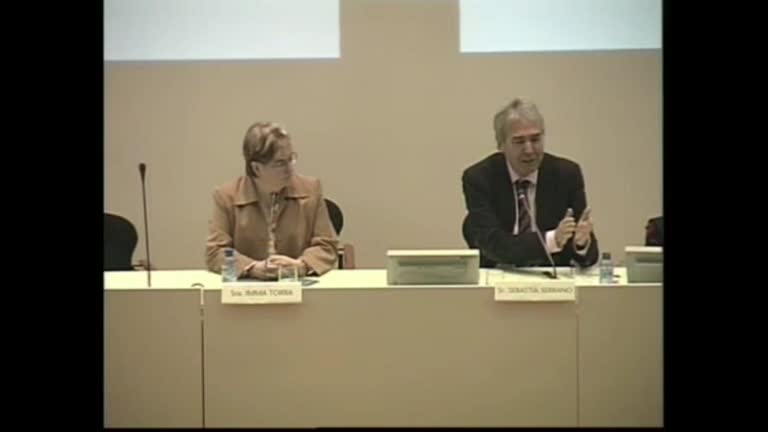Objectes multimèdia amb l’etiqueta: Ensenyament i aprenentatge
Resultats de la cerca
Comiols ponent. An example of a Theory TK of the Visual Proportions
Accés obert
1 d’abr. 2011
L’ idioma usat és el català, el francès, l’anglès i el castellà. Kim Lloveras i Montserrat, Dr. Arquitecte i Professor Titular de la UPC.
Exemple de les Lleis del Posicionament 2007 i de Moviment (abans de les Lleis del Moviment 2012).
Composició fotogràfica a la que s’introdueix el moviment. S’estudia cóm el fet d’introduir un petit “Connector d’Espais” fa que el Mig-Espai que es veu, amb el seu Posicionament Il•lògic (PIL) es converteixi amb un Espai, amb el seu Posicionament Lògic (PL). És a dir, s’inverteix la llum-color més clarenta que al Mig-Espai apareix en primer terme enviant-la vers el fons. Això succeeix quan la imatge és fixa; quan la imatge és en moviment no es produeix pas.
Exemple de les Lleis del Posicionament 2007 i de Moviment (abans de les Lleis del Moviment 2012).
Example of the Laws of Positioning 2007 with movement (before the Laws of Movement 2012).
Exemple des lois de Positionnement 2007 avec mouvement (avant les Lois du Mouvement 2012).
Ejemplo de las Leyes del Posicionamiento 2007 con movimiento (antes de las Leyes del Movimiento 2012).
Exemple de les Lleis del Posicionament 2007 i de Moviment (abans de les Lleis del Moviment 2012).
Composició fotogràfica a la que s’introdueix el moviment. S’estudia cóm el fet d’introduir un petit “Connector d’Espais” fa que el Mig-Espai que es veu, amb el seu Posicionament Il•lògic (PIL) es converteixi amb un Espai, amb el seu Posicionament Lògic (PL). És a dir, s’inverteix la llum-color més clarenta que al Mig-Espai apareix en primer terme enviant-la vers el fons. Això succeeix quan la imatge és fixa; quan la imatge és en moviment no es produeix pas.
Exemple de les Lleis del Posicionament 2007 i de Moviment (abans de les Lleis del Moviment 2012).
Example of the Laws of Positioning 2007 with movement (before the Laws of Movement 2012).
Exemple des lois de Positionnement 2007 avec mouvement (avant les Lois du Mouvement 2012).
Ejemplo de las Leyes del Posicionamiento 2007 con movimiento (antes de las Leyes del Movimiento 2012).
Exemples d'internacionalització
Accés obert
22 de març 2011
Taula rodona moderada per Pilar García-Almirall, amb la intervenció de: Mariona Benain, coord. internacionalització; Sandra Bestraten, cooperació internacional; Dariela Hentschel, project manager. A continuació, conferència que posa punt final a les Jornades amb la intervenció de Karin Hofert, professora responsable de Relacions Internacionals de l'Etsab, Gemma García, de cooperació europea DIBA i Àngels Jiménez, responsable secció anglès de l'ETSAV.
Exemple de cerca al cercador especialitzat SCIRUS
Accés obert
10 de març 2011
Tutorial de suport a un exercici corresponent a la impartició de continguts sobre habilitats informacionals integrats en les assignatures de grau de l'EPSEVG. En aquest vídeo es planteja un exemple de cerca realitzada mitjançant el cercador especialitzat SCIRUS.
L'avaluació de la informació : recursos a la xarxa
Accés obert
17 de febr. 2011
Píndola informativa que explica en què consisteix el procès d'avaluació de la informació.
El vídeo inclou l'explicació sobre: per què cal avaluar la informació, com fer una bona recerca, criteris a tenir en compte, l'aplicació de l'avaluació en un lloc web i un exercici per tal de practicar els conceptes explicats.
El vídeo inclou l'explicació sobre: per què cal avaluar la informació, com fer una bona recerca, criteris a tenir en compte, l'aplicació de l'avaluació en un lloc web i un exercici per tal de practicar els conceptes explicats.
Vídeo Institucional de l'ETSEIAT
Accés obert
27 de gen. 2011
L'Escola Tècnica Superior d'Enginyeries Industrial i Aeronàutica de Terrassa (ETSEIAT) és el centre d'estudis superiors de la Universitat Politècnica de Catalunya (UPC) en el Campus de la UPC a Terrassa i una de les escoles d'enginyeria de més tradició i prestigi a nivell estatal.


